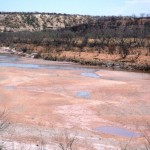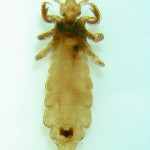When is a pesticide not part of the school IPM program? Janet Hurley and Don Renchie
According to the U.S. EPA, a pesticide is a chemical used to prevent, destroy, repel, or mitigate pests. Often misunderstood to refer only to insecticides, the term pesticide also applies to herbicides, fungicides, rodenticides, and various other substances to control pests. Many household cleaners are considered pesticides as well, by the EPA, but are typically exempt from school IPM programs. Recently there has been confusion over some public health products that are labeled as pesticides by the EPA, but are also exempt from the school IPM program.
Every school in the nation has faced a head lice outbreak at one time or another. When the outbreak occurs, the school nurse is typically involved and many school district policy’s require that students are either nit free (no presence of lice eggs) while others may have a no head lice policy, meaning the student must be totally free of nits and live lice. It is up to each school district in each state to determine what their policy will be. For information about TX schools and TX Department of State Health Services recommendations follow this link for more information. http://www.dshs.state.tx.us/schoolhealth/lice.shtm#3
Pediculicides are substances used to treat head lice and typically have an insecticide component as the active ingredient compound. In some cases, nurses will keep a small stock of pediculicides on hand to distribute to parents and students. In this case, this stock is exempt from the school IPM rules in most states, including TX. A head lice infestation is considered a social issue, not a health or pest control issue and as such, needs to be dealt with the school nurse.
With summer coming and the advent of mosquitoes, many districts aren’t sure about the use of mosquito repellents for students or staff. Repellents are considered a pesticide by EPA, but are also exempt from the school IPM program in most states. Effective insect repellents can protect the user from serious mosquito and tick-borne diseases. As with head lice, diseases like West Nile virus, Lyme disease and other insect borne diseases are considered a public health problem. Each school district will need to develop a policy for when and how repellents are used by staff and students. For more information about choosing an insect repellent, follow this link for more information http://cfpub.epa.gov/oppref/insect/
Antimicrobial pesticides are substances or mixtures of substances used to destroy or suppress the growth of harmful microorganisms such as bacteria, viruses, or fungi on inanimate objects and surfaces. Antimicrobial pesticides have two major uses 1) disinfect, sanitize, reduce or mitigate growth or development of microbiological organisms; and 2) protect inanimate objects (desks, floors, walls, etc.) from contamination or deterioration caused by bacteria, viruses, fungi, protozoa, algae, or slime. These products are typically used in the school setting by custodial staff, but can also be used by food service personnel or nurses in an effort to keep an area disease free. As with the other products mentioned in this article, if antimicrobials are used as defined above, they would be considered exempt from the school IPM program and records do not need to be kept by the IPM Coordinator.
Training on Safety Data Sheets By: Marjorie Lewis, New Mexico Department of Agriculture
Rumors have been flying that OSHA is requiring new pesticide training in their revised Hazard Communication Standard. The fact is, OSHA has ALWAYS required that employers train their staff about hazardous chemicals in the workplace. Pesticides are considered hazardous chemicals, and any employer who is subject to OSHA has a number of requirements, including training.
So why the rumors now? OSHA has revised the federal Hazard Communication Standard to bring it in line with the Globally Harmonized System of Classification and Labeling of Chemicals (“GHS”). One of the things OSHA changed involves Material Safety Data Sheets, or MSDS’s. They are now just Safety Data Sheets, or SDS’s. All employers are required to train their employees regarding the new Safety Data Sheet format by December 1, 2013.
Some of the revisions to the GHS have resulted in differences between EPA’s pesticide labeling requirements and OSHA’s requirements. The changes are related to hazard statements and signal words, among other things. These issues primarily affect pesticide manufacturers and registrants, and EPA has provided guidance to them on how to address this issue. Pesticide applicators should continue to follow the EPA label directions, and if they are employers, train their employees about the new format and content of Safety Data Sheets.
For more information see EPA: http://www.epa.gov/oppfead1/international/globalharmon.htm, or OSHA: http://www.osha.gov/dsg/hazcom/
NEW TESTING OPPORTUNITIES FOR STRUCTURAL PESTICIDE APPLICATORS
The Texas Department of Agriculture is starting a new computer-based testing program for structural pesticide applicators and has contracted with PSI Services to conduct examinations. The program will allow those who qualify for a license to use online and phone registration beginning April 8, 2013 for exams beginning April 15, 2013.
Twenty-three examination sites are located in Texas with each facility being staffed by employees who will monitor the exams and provide final, on-site scores upon completion. Exam fees are now reduced from $75 to $64 each. The increase in available exam locations is in response to growing interest and demand.
SIGNIFICANT CHANGES TO THE STRUCTURAL PEST CONTROL LICENSES APPLICATION PROCESS
Significant procedural changes have been made for obtaining a structural pest control license. Applicants must now be pre-qualified by TDA prior to registering to take examinations with PSI.
- Applicants for Technician License must complete an Application for Apprentice Registration & Technician License and pay license fees.
ELIGIBILITY AND EXAMINATION FOR TECHNICIAN LICENSE:
An applicant may only sit for a Technician examination category in which they have completed the approved twenty hours of course-work outlined in Rule 7.133(h)(1) and the forty hours of on-the-job-training and eight hours classroom training outlined in Rule 7.133(h)(2).
Include a copy of your Technician Training Certificate. You will not be eligible to take the licensing exams until proof of completion is submitted to TDA
- Applicants for Certified Applicator License must complete an Application for Certified Applicator License and pay license fees.
ELIGIBILITY AND EXAMINATION FOR CERTIFIED APPLICATOR LICENSE: http://tinyurl.com/ScheduleExam
Applicants for Commercial Certified Applicator must meet one of the following requirements to be eligible to take Certified Applicator Exams:
- Have at least 12 months of verifiable pest control experience out of the past 24 months and have possessed a SPCS technician license for at least 6 months; or
- Have a degree in the biological sciences from an accredited college or university (acceptable degrees include Agronomy; Entomology; Animal Science; Landscape Architecture; Forestry; Agricultural Science; Biology; Chemistry; Environmental Science; Earth Science; Horticulture); or
- Have proof of previous employment or experience in the industry or technical field experience of at least 12 months out of the past 24 months from a previous occupation; or
- Have previously held a Certified Applicator license; or Have held a Noncommercial Certified Applicator license with TDA for at least 24 months.
For Noncommercial and Noncommercial Political Certified Applicator licenses only:
- Must have taken a department approved, minimum six (6) hour noncommercial/technician training course.
All applicable license fees and documents such as official transcripts, training certificates and signed/notarized statements or letters from the appropriate licensing entity must be submitted to TDA’s licensing department in Austin.
After all documents are received by TDA, applicants will receive an Examination Eligibility Letter and may then contact PSI to register, make payment and schedule examinations. PSI will provide additional information upon successful registration.
Examination Site Locations in Texas:
Abilene, Amarillo, Arlington, Austin (2), Corpus Christi, Dallas (2), El Paso (2), Fort Worth, Harlingen, Houston (4), Lubbock, McAllen, Midland, San Antonio (2), Tyler, Waco.
PSI also has examination centers in many other regions across the United States. Upon special request to PSI, applicants may qualify to take examinations at these locations.
For updated information and to obtain a Structural Pest Control Examination Candidate Information Bulletin containing important information about computer-based examinations, visit www.psiexams.com
AgriLife Extension launches Water Education Network online By: Kathleen Phillips
A Water Education Network to help people in Texas learn the best ways to manage the precious resource has been launched by the Texas A&M AgriLife Extension Service.
The site, http://water.tamu.edu provides a “front door” for all of AgriLife Extension’s information on water conservation, water management, irrigation, and water quality, which makes it easier to navigate, according to the developers.
“With water being our agency’s No. 1 topic, it was crucial that we develop easy access to water materials,” said Dr. Pete Gibbs, AgriLife Extension associate director. “AgriLife can be the go-to source for objective and reliable water information.”

A Water Education Network to help people in Texas learn the best ways to manage the precious resource has been launched by the Texas A&M AgriLife Extension Service at
http://water.tamu.edu. (Texas A&M AgriLife Communications photo by Kay Ledbetter)
The Water Education Network contains information useful for homes, residential and city landscapes, and agricultural and wildlife management.
Water-related programs are organized in three main categories: conservation, management and irrigation, and quality, according to Treye Rice, AgriLife Extension website designer.
“Water conservation, management and irrigation, and quality are the areas that people most want to know more about,” Rice said. “We’ve organized it so that those topics are easy to reach either directly on the site or with search engines. The key is to get important facts and how-to information to the people as easily as possible.”
Rice said people also can find links to water-related events, classes and trainings offered by AgriLife Extension throughout the state, and can subscribe to receive email updates.
Water conservation topics and publications on the site include: Water Conservation at Home, Youth Water Resources, Conserving Residential Water Through the 40-Gallon Challenge, Landscape Water Conservation using Earth-Kind Landscaping, Water Conservation and Technology Center, and Biological Control of Aquatic Weeds and Saltcedar.
In the water management and irrigation section, viewers will find: Stormwater Management Program, Rainwater Harvesting, The School of Irrigation, Irrigation and Agriculture, Rebuilding the Beef Herd (after Drought), and Managing Ponds and Lakes on Private Lands.
Water quality is addressed with: Protecting Texas Watersheds, Attoyac Bayou and Bacterial Source Tracking, Onsite Waste Water Treatment Systems, Texas Well Owner Network, and Animal Manure and Process Waste Water Management.
“Water-related resources, such as fact sheets and publications, are being added and cataloged into this website regularly,” Rice said.
Already available are: Home Water Conservation Tips and Checklist, Energy Star Appliances Overview, Home Water Quality Problems – Causes and Treatments, Rainwater Harvesting System Overview and Making a Rain Barrel.


 .
.